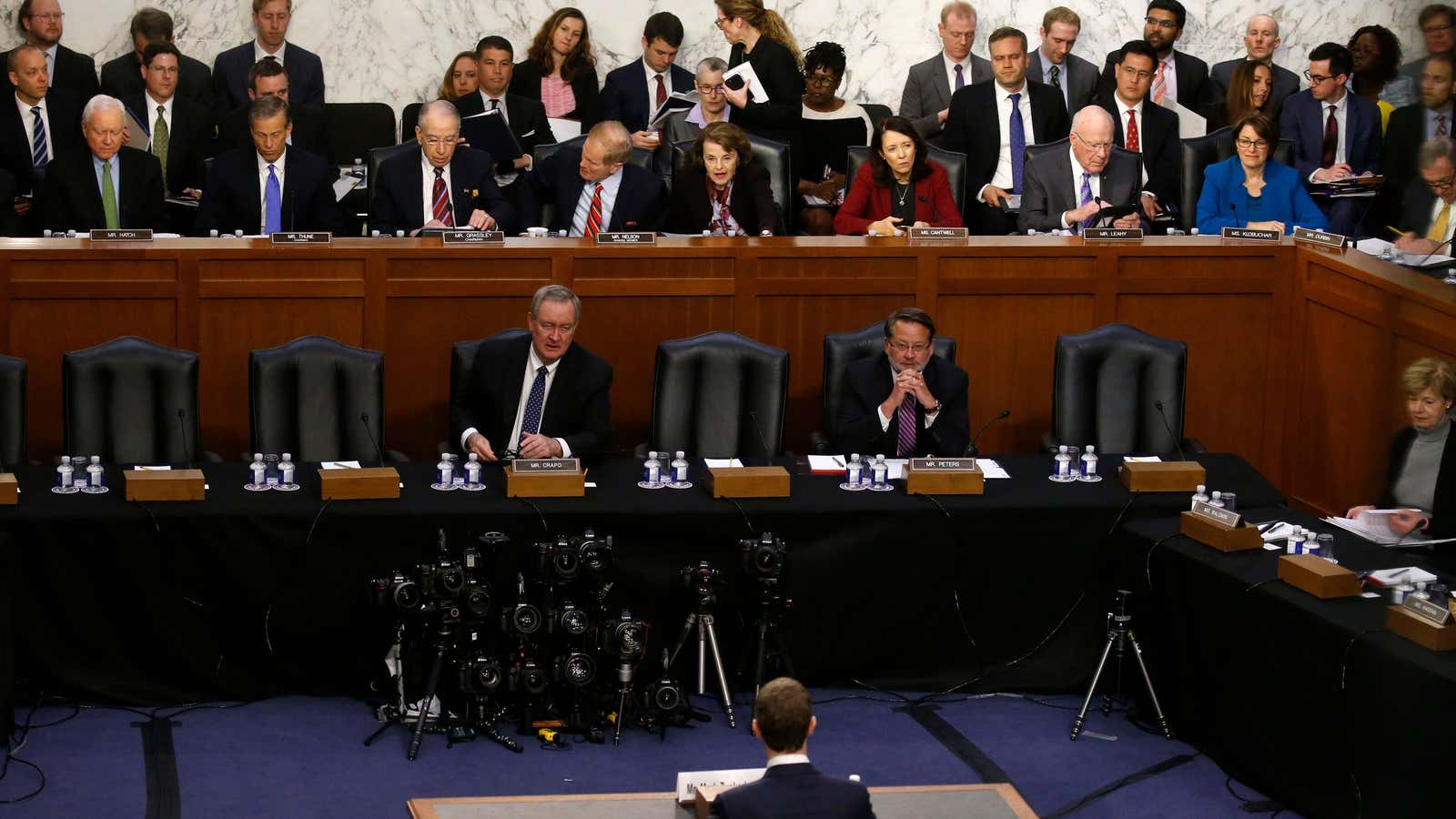At this week’s US Congressional hearings on Facebook’s handling of user data, Sen. Orrin Hatch of Utah looked genuinely puzzled when his turn came to lob a question at Facebook CEO Mark Zuckerberg. With his furrowed grey brows and his eyes on his notes, Hatch read Zuckerberg a question: “How do you sustain a business model in which users don’t pay for your service?”
“Senator, we run ads,” Zuckerberg answered. You could forgive viewers for wondering how much Hatch really understood about Facebook, and whether a 33-year-old had suddenly turned the tables and gained the upper hand on the longest-serving Republican Senator in history.
The internet quickly mocked Hatch’s exchange (sample jibe: “ZUCKERBERG: im ready to answer any questions u might have about facebook, 84-YEAR-OLD SENATOR: excellent. mr zuckerberg my farmville farm needs more pigs but i cannot figure out where to purchase them.”) While social media blew up a few other absurd moments, the exchange with Hatch quickly came to typify Congress’ collective bewilderment about the subject of its investigation. This isn’t just an obscure start up, it’s a company with 1.4 billion daily users and a nearly half a trillion dollar market cap.
Congressional hearings can go wrong in so many ways. They can be overly partisan, accomplish nothing, and be avenues for celebrities to champion personal agendas. But if the legislative body’s latest undertaking succeeded at anything, it was in illustrating how poorly qualified its members are to solve the insidious, world-changing problems spawned by modern technology. Age, compounded with wealth, status, and willful-ignorance are fueling the disconnect between US Congress and the American experience. If elected officials can’t relate to us, they can’t even begin to solve our problems (or even know what they are).
American leaders have never been this old, which right off the bat makes them lousy candidates to fix tech (and many other) problems. At 84, Hatch is not even the oldest Senator, but he has been serving in the chamber longer than Zuckerberg has been alive (ironically, Hatch ran on a promise of term limits, arguing his three-term incumbent opponent was out of touch).
Hatch isn’t an outlier. Donald Trump is the oldest first-term US president, and the average age of a member of Congress has increased steadily since 1981. Today, the average age in the House is 58 and in the Senate it’s 62—party leaders tend to skew a decade older.
But advanced age doesn’t equal technological illiteracy. Aside from 37-year-old Representative Joe Kennedy’s tough questions, many younger lawmakers couldn’t seem to grasp the issues: 45-year-old Sen. Brian Schatz didn’t seem to comprehend the difference between text messages and emails or that encrypted texts can’t be accessed by outside parties.
Members depend on staff for a litany of tasks most Americans do for themselves. For some, this clearly includes managing their social media accounts. If it wasn’t painfully clear from Hatch’s behavior at the hearing, a cursory look at his Facebook profile shows he spends little to no time on the account.
Beyond just issues of national security, modern life requires most of us to have a basic fluency in social media. More than 80% of Americans use social platforms and that number is at least 10% higher for millennials, according to the Pew Research Center. Congress doesn’t have this fluency—that showed during the hearings. Now we need to worry about how it will show as the legislative body tries to stumble forward and prevent further data abuses. Maybe a good start would be learning how to regularly interact with their constituents the way their constituents interact with each other.
